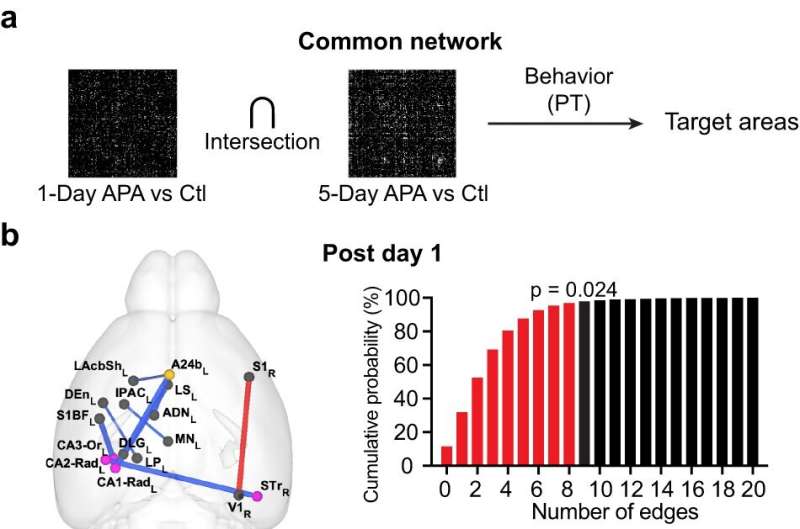This article has been reviewed according to Science X's editorial process and policies. Editors have highlighted the following attributes while ensuring the content's credibility:
fact-checked
peer-reviewed publication
trusted source
proofread
Research reveals new brain networks critical to memory formation

Researchers at The University of Queensland have identified new regions of the brain crucial to the formation of long-term memory.
Associate Professor Kai-Hsiang Chuang from the Queensland Brain Institute said the finding challenges the conventional notion that the hippocampus is central to memory consolidation, by demonstrating that a different set of brain networks play a role.
"Memory consolidation involves the reorganization of brain networks during rest and sleep," Dr. Chuang said.
"But pinpointing which area of the brain supports memory consolidation is difficult and poorly understood because the process is highly spontaneous."
The researchers used magnetic resonance imaging (MRI) of mice to see that two types of spatial memory training resulted in distinct functional brain connections. The research was published in Nature Communications.
"We found the connections made the brain more integrated and shared a network involving the sensory cortex and subcortical areas," Dr. Chuang said.
"By identifying and manipulating the hubs within the spontaneous networks, we have shown there are more brain regions involved in memory formation than previously assumed."
Dr. Chuang said studying the mechanisms of the brain is crucial to understanding memory-related disorders like amnesia and cognitive decline.
"These findings not only demonstrate the causal and functional roles of the brain's network hubs in this essential cognitive process, but also imaging techniques that can be used to locate the targets," he said.
"By detecting and targeting specific hubs within the brain's spontaneous networks, we may one day find ways to enhance or suppress memory consolidation and treat memory related conditions such as dementia or post-traumatic stress disorders."
More information: Zengmin Li et al, Locating causal hubs of memory consolidation in spontaneous brain network in male mice, Nature Communications (2023). DOI: 10.1038/s41467-023-41024-z





















